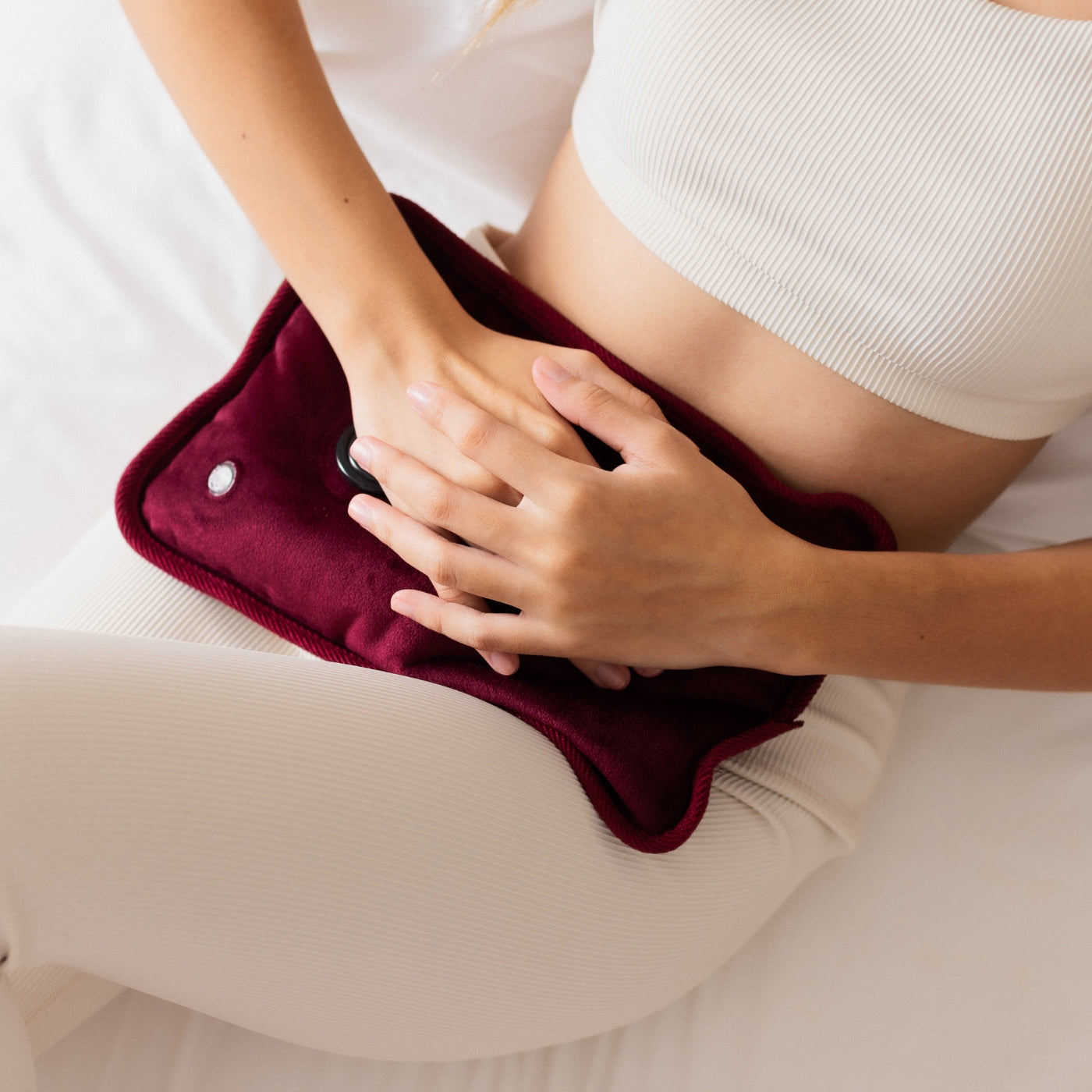
What causes more pain with a period? It brings along acne! A fluctuation in hormone levels is also responsible for your moodiness, sore breasts, and other PMS-related symptoms, in addition to acne.
According to experts, period breakouts occur when your body produces too little progesterone, producing an imbalance between low progesterone and increased estrogen.
Progesterone synthesis decreases and estrogen (a female sex hormone) levels increase right before the start of your period. This can cause your body to produce more oil as a result. Acne outbreaks can be brought on by excess sebum clogging your pores.
When you have period-related acne, it is more likely to flare up the week before or during your period. Additionally, when your menstruation is ending or over, it usually clears up or improves.
Why do hormones change when you're menstruating?
They are in charge of the complete period process. Alterations in hormone levels can also lead to skin irritation and acne.
The body works nonstop during each cycle to get ready for a prospective pregnancy. This implies that throughout each menstrual cycle, the brain and ovaries work in concert to produce variations in hormone levels.
While levels of estrogen and progesterone change, testosterone, a male hormone, can stimulate sebaceous gland activity. This might make acne symptoms worse.
Where can you get period acne?
Your jawline and the area under your chin are the typical locations for period acne. During your period, you can start noticing small (or huge) cysts. If you try to burst these cysts, they may even become painful and cause further outbreaks and infection. Squeezing and popping can create scars.
The causes of and treatments for cystic acne during your period
A severe type of acne that affects the face, chest, and back is cystic acne. Its defining features include numerous inflammatory lumps under the skin, including nodules, cysts, and frequent scars.
When a person is a teenager or an adolescent, acne is most prevalent. On the other hand, severe acne can persist into maturity. According to recent studies, menstrual acne in adults is present in 44% of women.
Due to hormonal changes, cystic acne can develop because of the menstrual cycle as well as other life events including pregnancy and perimenopause.
Treatment can be complex, and it might include taking multiple medications.
People with cystic acne frequently require extensive treatments like Oral antibiotics, Intralesional steroids, Systemic steroids, and Hormonal therapy.

Period Acne Treatment
Today, there are a variety of treatments available for treating acne. The following are some of the more popular treatment options:
Deeply cleanses pores without stripping the skin of its natural oils
Reducing the frequency of breakouts
Helping to repair & resurface damaged skin; scars, hyperpigmentation & sun spots
Stimulates skin cell turnover, smooths fine lines and wrinkles, and improves skin tone and texture.
Oral Medication For Period Acne
- Birth Control Pills
Some birth control pills work well to treat hormonal acne.
- Anti-Androgens
Flutamide, Spironolactone, and Cyproterone are anti-androgen medications that control and lower the body's androgen levels. An excessive amount of oil can be produced when levels of androgen are high. This may result in acne.
For oral medicine, consult your dermatologist.
The FDA has authorized three different birth control pill formulations for treating acne. They are all oral contraceptives that mix progesterone and estrogen. In fact, birth control medications that simply contain progesterone can exacerbate acne.
Finding the best acne treatment for you may need some trial and error. When coping with the ongoing hormonal fluctuations that take place throughout life, can be extremely challenging.
Top 10 Home Treatments For Period Acne
Helps decrease the severity of breakouts. Soothes inflammation and supports the bodies repair process
This natural skin booster gives you all the benefits of Retinol - without the irritating, drying side effects.
- Honey
A variety of ayurvedic treatments employ honey as a medicinal ingredient to treat various skin issues. Honey contains antibacterial qualities that can destroy the bacteria that cause acne in addition to moisturising.
- Warm Green Tea Bag
The irritation will be reduced by a warm green tea bag. Green tea has anti-inflammatory qualities that can help to lessen the pain and swelling associated with zits.
- Cold Compress
Pain and swelling can both be decreased with a cold compress. Every day, apply pressure to the pimple for 5 to 10 minutes.
- Hot Compress
A warm compress will aid with pus drainage and lessen swelling. Every day, leave it on your zit for 10 to 15 minutes.
- Eat healthily
Actually, one of the best ways to avoid terrible hormonal acne is to eat healthily. So for the love of your skin, pile on the fruits and vegetables!
- Avoid dairy and sweets
Sugar in all forms should be avoided first, followed by all forms of dairy from cows. Both sugar and dairy products made from cows can raise insulin levels, which can worsen acne.
Additionally, you should avoid freshly squeezed juice if you want to maintain clear skin. Juice's abundance of sugars will cause your insulin levels to soar, which may seem counterintuitive.
- Cleanse your liver
It's great news for your period acne because it will help balance your hormones to take a herbal supplement or drink water with lemon in the morning to help your liver detoxify.
- Antimicrobials and probiotics are beneficial
Examining factors other than hormones is necessary to understand what is producing and maintaining period acne.
Probiotics come into play because they can work with your gut to decrease inflammation. Fighting inflammation can even help your hormones "fall into place."

Goodieco recommended products to help treat acne
Helps to repair & rejuvenate skin damaged by acne scars & hyper-pigmentation
Great for clearing up acne
Natural linoleic acid helps calm inflamed acne-prone or acne-recovering skin.
Natural antibacterial and antifungal benefits, assist skin conditions such as eczema and acne.
